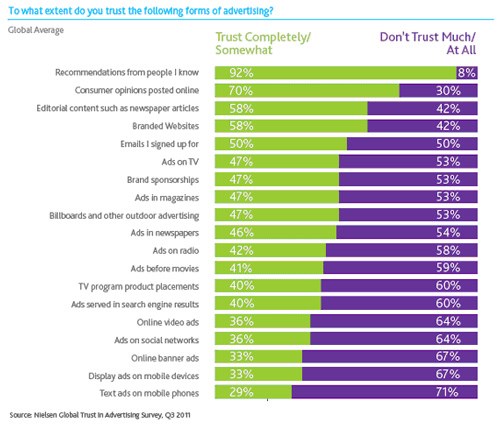
Top stories






More news








Logistics & Transport
Maersk reroutes sailings around Africa amid Red Sea constraints





Because we quite often tend to forget that consumer behaviour is not always logical behaviour. It is more often than not motivated by perception rather than reality and hearsay rather than facts.
It is an absolute fact of life that almost all consumers will almost always prefer to listen to friends, family or people they know with regard to buying or not buying a product or service even if those friends, family and people they know have very little knowledge or experience.
Less than half the number of those same consumers will trust ads for those products in traditional above-the-line media while even less - only a third - trust ads on social, networks and display ads on mobile devices.
Quite extraordinary when you realise that in actual fact ads are mostly accurate and true simply because if they are not the ad watchdogs will come down on them like a ton of bricks.
What is even more illogical is that more consumers trust editorial and advertorials in magazines and newspapers than conventional advertising. Which really doesn't make sense because there are no watchdogs keeping an eye on editorial product claims with the result that there is the propensity for a lot of bullshit to baffle a lot of brains.
I was reminded of these somewhat bizarre behavioural traits among consumers when I spotted a link on Twitter drawing attention to the Nielsen Global Trust in Advertising Survey for the third quarter of last year.
The most important lessons marketers can take from this is not to fall on their swords and stop mass-media advertising, but rather to be forever conscious of the fact that consumers trust those they know.
I believe that that this doesn't necessarily only apply to human beings but also to brands.
If consumers are brand loyal they will be far more likely to trust a recommendation from that brand in whatever shape or form the advertising appears.
It is for this very reason that on-the-ball marketers today work on the basis that trust, honesty and integrity are not actually enough to convince consumers with advertising today, they need to entrench brand loyalty - the ultimate marketing prize.
Brand loyalty is the component that's makes advertising work. Just ask the folks at Apple.

